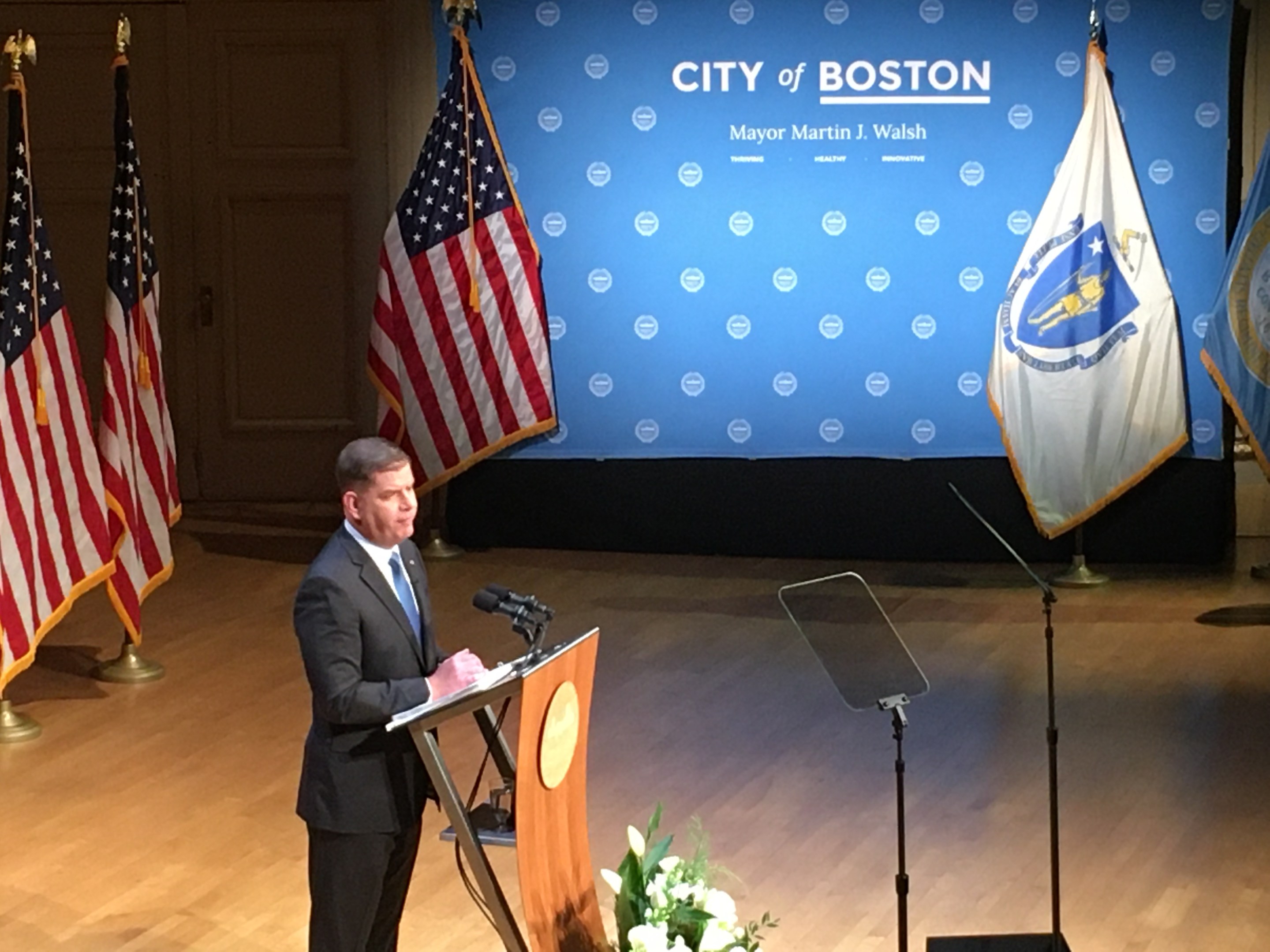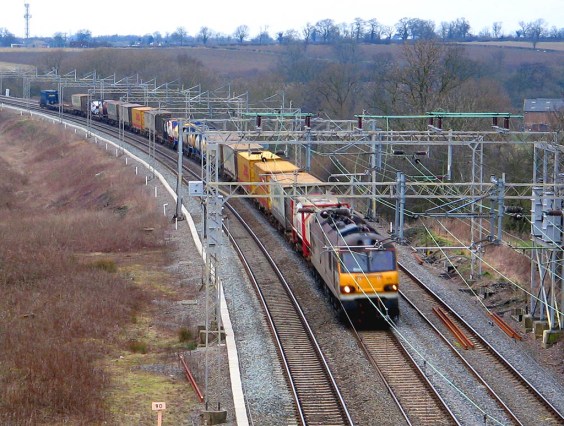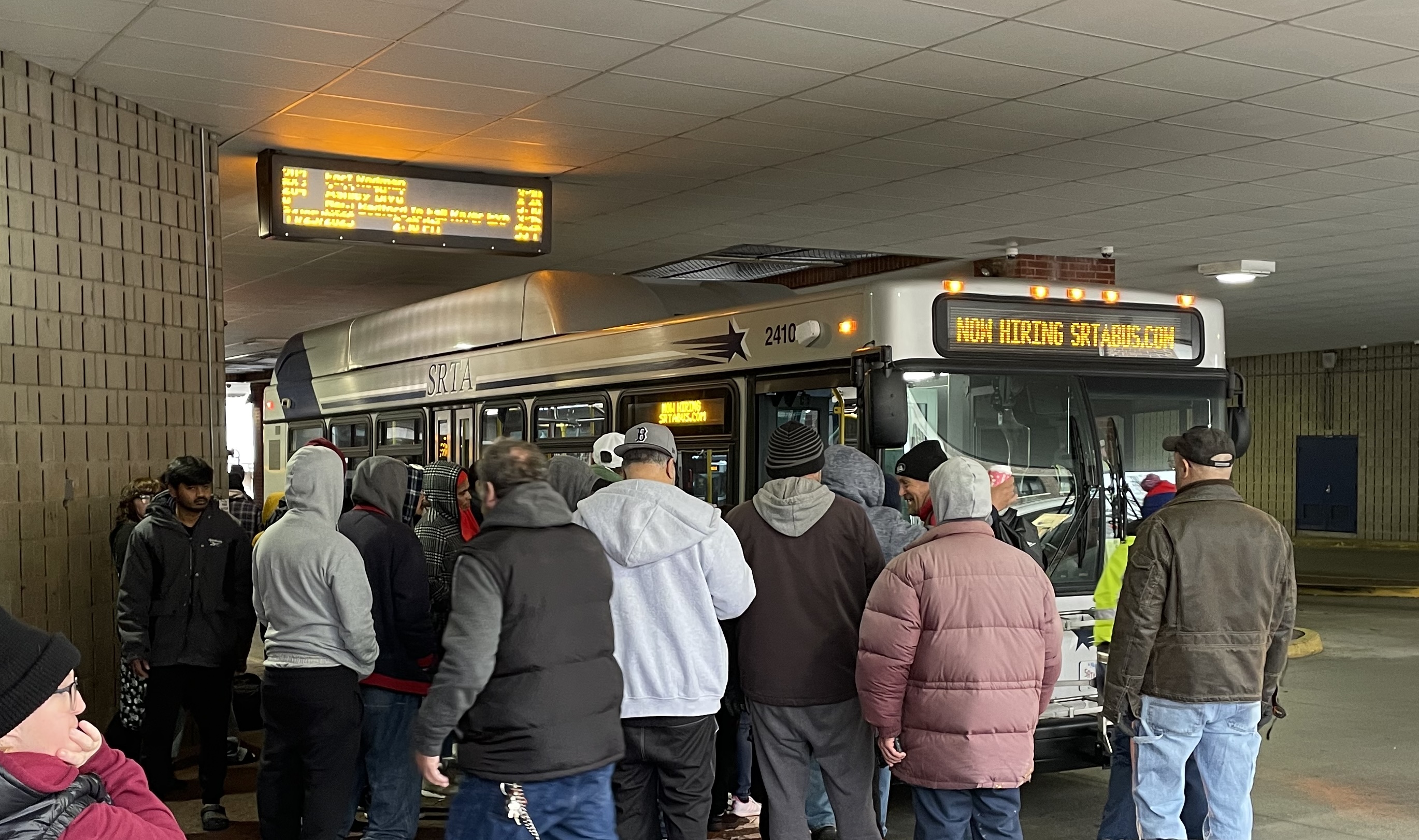Education, transportation, and housing were the major themes in Mayor Marty Walsh's 2020 State of the City address, delivered Tuesday evening at Symphony Hall.
The mayor's speech mostly focused on accomplishments the city has made during his term, which has coincided with a sustained period of national economic growth. But in highlighting these three policy areas, the mayor implicitly acknowledged the city's growing inequality, and the need for City Hall to act aggressively to give low- and middle-income households better access to the city's opportunities.
"The state of our city has never been stronger," asserted the Mayor. "It's an exciting time for Boston, but there's a lot of work still to be done."
In the transportation realm, Walsh referenced the city's Vision Zero policy, but instead of committing to safer street designs, he announced "a plan to strengthen traffic enforcement," to tepid applause.
The mayor then launched into a longer discussion of the city's efforts to improve transit. "We're going to make our streets work better for everyone," said Walsh. "For many of our issues, public transit is the solution."
Walsh boasted about his administration's efforts to increase service on the Fairmount Line, and of new bus lanes in Roslindale, Allston, and downtown, and promised "more to come."
But he also warned that the city's ability to improve mobility would be limited by the state's budget decisions made in the State House, and urged lawmakers to "be bold" in drafting an overdue transportation funding bill.
Failing that, Walsh said that the State House should authorize municipalities like Boston to issue regional ballot initiatives to fund projects through local sales tax surcharges.
"If you can't move forward, then let us lead," Walsh told state legislators. "Other states have enabled cities as different as Los Angeles, Indianapolis, and Phoenix to use regional ballot initiatives and take a quantum leap forward in transportation. The people voted for projects and revenue to fund them - now they're being built."
In an accompanying press release, the Mayor's office also announced Tuesday evening a new "East Boston Transportation Action Committee" that would address mobility issues in a neighborhood that's cut off from the rest of the city by Boston Harbor.
The press release mentions several new projects for East Boston, including "improving bus reliability on Meridian Street," which runs north-south along the Mystic River waterfront from the Maverick Blue Line station to downtown Chelsea, and "designing Bennington Street" - which parallels the Blue Line tracks - "to be safer and more bike friendly."
Planning for these projects is expected to be a joint effort between the Boston Transportation Department, the Boston Planning and Development Agency, and neighborhood stakeholders.






